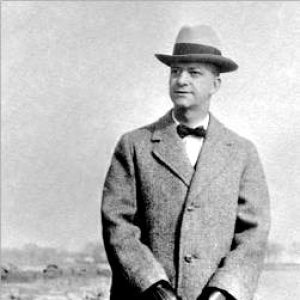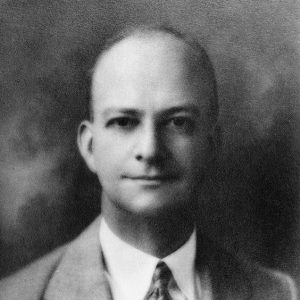calsfoundation@cals.org
David Thibault (1892–1933)
David Thibault was an agricultural agent and writer whose short stories appeared in popular national magazines. His early death cut short his career before he could accumulate a large body of significant work. Some of his best fiction draws characters, settings, and themes from plantation life in Arkansas in the early twentieth century.
David Thibault was born on May 23, 1892, at Walnut Grove plantation east of Little Rock (Pulaski County). His parents were James Keatts Thibault, a farmer, and Corinne Laurie Gibson Thibault. He was the youngest of nine chlidren and was educated in the public schools of Little Rock.
In 1915, Thibault married Irene Graeme Stockton, a high school English teacher. In 1917, they had a son, David Thibault Jr., and they moved to the family plantation. Thibault was a county agricultural agent in Arkansas and Mississippi and operated a farm in Phillips County.
In 1923, he moved to New Orleans, Louisiana, where he served as editor on the staff of Modern Farming and as advertising manager of the Woman’s Home Review. He also wrote feature stories and editorials for the New Orleans Item and the Morning Tribune. In 1928, he and his family lived in Larchmont, New York, and Thibault worked as editor of a trade publication of the American Cyanamid Corporation in New York City. He was subsequently hired by the promotion department of Crowell-Collier, a publisher of several magazines that also published a considerable amount of popular fiction. The publisher sometimes subsidized promising young writers; they were encouraged to pursue their own writing between promotional assignments.
Between 1928 and 1931, Thibault published eleven short stories—six “short-shorts” (complete on one page) and five standard-length stories in national magazines, including Country Gentleman, Ladies’ Home Journal, and Collier’s. They are typical of magazine fiction of the day, with humor, skillful description, and satisfying endings. They frequently depict families in which the youngest brother is both teased and nurtured by his siblings. One of his stories, “Open to Argument,” published in Collier’s in 1929, has an Ozark village setting. The story involves a debate held in a rural community center; the main characters are two young lovers and a wise older woman. His adventure-romance Tunchi was published by Century in 1933.
Thibault was working on a novel, Salt for Mule, when he died in Larchmont, New York, on June 17, 1933, of meningitis. Harper’s Magazine published two chapters of the incomplete Salt for Mule in 1937, with an appreciation by editor Russell Lord. The chapters, which can stand alone as independent narratives, are titled “A Man and His God” and “A Woman Like Dilsey.” They are rich in details of plantation life and are almost entirely focused on the lives of the black laborers. They portray the sharecroppers with sympathy and humor, and without sentimentality or condescension. The central character in both stories is Easter, a young field hand, and the plots revolve around his desire for the beautiful but mysterious Dilsey.
For additional information:
Baker, W. M., and Ethel C. Simpson. Arkansas in Short Fiction. Little Rock: August House, 1986.
Obituary of David Thibault. Arkansas Gazette. June 18, 1933, p. 6.
Simpson, Ethel C. “David Thibault’s Magazine Fiction.” Arkansas Historical Quarterly 53 (Spring 1994): 19–31.
Thibault Family Materials. Butler Center for Arkansas Studies. Central Arkansas Library System, Little Rock, Arkansas.
Ethel C. Simpson
University of Arkansas, Fayetteville
 David Thibault
David Thibault  David Thibault
David Thibault 



Comments
No comments on this entry yet.